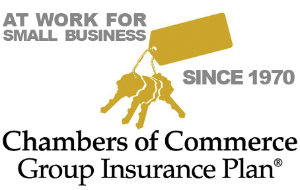
| October 19, 2018 | Submissions? email brad@gncc.ca |
GNCC
EVENTS

Lunch & Learn: How to Increase Your Sales
Tuesday, October 23, 2018
Coppola’s Ristorante & Banquet Centre
203 Carlton Street, St. Catharines
12:00pm to 1:30pm
Learn the secrets for driving digital sales for the success of your business. Presented by Mark Cressman, Regional Director, Digital Sales, Postmedia Network Inc.

Niagara Business Leadership Series: Featuring the Hon. Peter Bethlenfalvy
Thursday, October 25, 2018
Royal Niagara Golf Club
1 Niagara-on-the-Green Boulevard, Niagara-on-the-Lake
11:30am to 1:30pm
As we approach the Fall Economic Statement, Minister Bethlenfalvy will be sharing his vision for building a modern, sustainable, government in the digital age.

Small Business Month Luncheon
Tuesday, October 30, 2018
Club Roma
125 Vansickle Road, St. Catharines
11:30am to 1:30pm
Join us for Small Business Month Luncheon! Featuring small business success story by Tonia Jahshan, Founder, Steeped Tea. Followed by a panel: The Next Year in Small Business: What You Need to Know.

Niagara Economic Summit
Friday, November 2, 2018
White Oaks Conference Resort & Spa
253 Taylor Rd., Niagara-on-the-Lake
7:30am to 2:30pm
The Niagara Economic Summit brings us together to celebrate shared successes, strategize the way forward for our regional economy, and increase collaboration.

Business After 5
Tuesday, November 6, 2018
Greg Frewin Theatre
5781 Ellen Avenue, Niagara Falls
5pm to 7pm
Meet and mingle with Chamber members and their guests. It’s a great place to relax and do business! No registration is required to attend this event.

Nuclear Power: Helping Drive Ontario’s Economy
Friday, November 9, 2018
Holiday Inn Express & Staybridge Suites Niagara-on-the-Lake
524 York Road, Niagara-on-the-Lake
8am to 10am
This event provides information to local businesses on the contribution of Pickering and Darlington to Ontario’s energy system, provides a high-level overview of the OCC’s 2018 economic impact analysis on Pickering, and identifies broader supply chain benefits across the regional area of nuclear power.

2018 Women in Business Awards
Friday, November 16, 2018
Marriott on the Falls
6755 Fallsview Blvd., Niagara Falls
11am to 2pm
The Women in Business Awards (WIBA) is an annual event to recognize the leadership and success of women in our business community.

Business After 5 Holiday Social
Tuesday, December 4, 2018
Ruth’s Chris Steakhouse
6455 Fallsview Boulevard, Niagara Falls
5pm to 7pm
Save the date for our annual Holiday Social Business After 5!
![]()
 YourTV, in cooperation with local Chambers of Commerce and the Niagara Association of Realtors, has aired Behind the Ballot Mayoral Candidate Debates. The mayoral debates can be viewed at any time at www.yourtv.tv/niagara. You can watch the mayoral debates from the links below:
YourTV, in cooperation with local Chambers of Commerce and the Niagara Association of Realtors, has aired Behind the Ballot Mayoral Candidate Debates. The mayoral debates can be viewed at any time at www.yourtv.tv/niagara. You can watch the mayoral debates from the links below:
| Fort Erie Mayoral Debate | St. Catharines Mayoral Debate | |
| Grimsby Mayoral Debate | Pelham Mayoral Debate | |
| Niagara Falls Mayoral Debate | Port Colborne Mayoral Debate |
Please note, a debate featuring mayoral candidates for the City of Welland was cancelled due to non-participation by all candidates
Behind the Ballot profiles for those seeking seats on Regional Council are also available:
MEMBERS
IN THE NEWS
Education Takes Flight at Niagara District Airport
Shay Vidal has lofty ambitions. “I want to fly a plane,” said the Grade 8 student at St. Michael Catholic Elementary School. It’s a dream shared by his classmates Marcus De Torres, who hopes to one-day fly fighter jets, and David Shirley, who said he signed up for air cadets in the hopes of flying.
They joined students from Denis Morris, Lakeshore Catholic, Notre Dame, Holy Cross and Saint Francis high schools at Niagara District Airport Wednesday to celebrate Niagara Catholic District School Board and the airport commission’s new partnership to allow grades 11 and 12 students to participate in an aviation and aerospace specialist high skills major program at the airport.
Free Seminar: Retirement Has Changed; What’s Your Next Move?
When you retire, will you volunteer? Work part-time? Go back to school? Whatever you decide, you need to be financially prepared. Edward Jones can help you find your retirement reality at their free seminar on November 1, presented by Nicolle Lalonde.
This seminar discusses how to take inventory of current assets and determine how much money investors may need during retirement. Explore how to organize and record your financial assets, setting realistic goals for retirement spending, and what to do if you’re not where you’d like to be.
Canada Games Torch Coming to St. Catharines
Seven athletes and sports enthusiasts will get their moment with the Canada Games torch this weekend. As part of the MNP Canada Games Torch Relay, the Roly McLenahan Torch will be stopping in St. Catharines on Saturday. The public is invited to share in the celebrations as the relay kicks off at 10 a.m. at Market Square.
The torch relay started in Ottawa where it was lit by the Centennial Flame on Parliament Hill. It’s now making its way across the country, stopping in at 48 communities along the way. St. Catharines and the Niagara region will be the fourth stop on the relay, following its Ottawa kickoff, as well as stops in Halifax, N.S., and Montreal, Que. It will head off to London, Ont., after leaving Niagara.
Red Roof Retreat Program Targets Youth Mental Health
Youths who are struggling with mental health problems will soon find help at Niagara-on-the-Lake’s Red Roof Retreat. The charitable agency that provides a range of respite and recreational programs to children, youths and young adults with special needs and their families in Niagara announced on Tuesday plans for a new initiative targeting the mental health of young people.
Red Roof Retreat is also holding their annual Fall Open House on Saturday, October 20. More information on Red Roof Retreat’s programs will be available then, and in November, they will host an information night for the community to learn more about the goals and objectives of this new initiative.
Pathstone Mental Health selected as recipient of 2019 Many Hands Project
Pathstone Mental Health has been selected as the 22nd recipient of Niagara College’s Many Hands project. The annual project sees Niagara College students support a local community non-profit organization with fundraising, marketing and public awareness of the agency.
Throughout the 2018/2019 academic year, students in Niagara College’s Event Management (Graduate Certificate) program as part of their studies will plan, manage and host four unique events to support Pathstone, including a vintage-themed music trivia night, a comedy evening, a designer-purse bingo event and a wellness event that pairs yoga with mimosas.
Masquerade for Big Brothers Big Sisters
Join Big Brothers Big Sisters St. Catharines, Thorold & District and Darren Stoute Catering and the Garrison House for a Masquerade on November 2, 2018. Held at the historic Court House in Niagara-on-the-Lake, local chefs will demonstrate why you do not need to leave the Niagara Region for sumptuous food and delicious wine.
There will be fun and frivolity for all who attend all for a great cause! Wearing a mask is only the beginning! Keep your eyes on their Facebook and Twitterprofiles as Darren and David reveal who will be participating in this event.
Do You Have What It Takes to Beat the Brainiacs?
Join the Education Foundation of Niagara for an evening of rip-roaring fun and brain-tickling trivia at their Beat the Brainiacs Trivia Night on November 8 at Hernder Estate Winery.
Early Bird tickets are available until October 26. The evening includes pizza, snacks, and great fun. To book your table now, contact Nicole Smith at nicole.smith@dsbn.org or call 905-641-2929 extension 37710.
Storm Hair Group Raises Funds for Client with Lyme Disease
About 4 million Canadians have either been diagnosed or know someone who has been diagnosed with Lyme disease. On November 10, Storm Hair Group is holding a fundraiser for Lorrie McKay, a loyal, long-time client of theirs who was recently diagnosed with the disease.
Proceeds from the fundraiser will help Lorrie with her treatment which is not funded in Ontario at this time. Consequently, Lorrie has to travel to the United States for her treatment. The fundraiser will include door prizes, raffles, and more. If you are interested in helping out, please download their flyer.
Avoiding Expensive Tax Mistakes When Buying Property from Non-Residents
In this month’s blog, independent consultant Balaji Katlai takes a look at a court appeal of a withholding tax that was levied following purchase of a condominium in Toronto from a non-resident. The appeal was heard in December 2017 and was dismissed with costs totalling $92,000. Why was this punitive outcome levied on the buyer?
In short, the seller had not obtained a clearance certification nor had the legal representative of the buyer deducted a withholding tax. The buyer was held liable for this tax, which is 25% of the gross sale, as per the law. Such reporting failures can lead to potentially punitive tax costs to the buyer.
NETWORK
NEWS
Engaging Canadians: Statistics Canada’s National Dialogue
During the third week of October, Statistics Canada will host its first ever ‘Engaging Canadians: Statistics Canada’s National Dialogue’ featuring online consultations, over 110 virtual forums, teleconferences and round-table discussions in 19 cities across the country with businesses, students, academics, public servants, journalists, citizens and others.
Statistics Canada has invited the public to complete a short online survey for their National Consultations Week 2018. The views and suggestions provided from the survey will help guide changes to modernize the country’s statistical agency and ensure that the public’s needs are met. All personal information created, held or collected by the agency is protected by the Privacy Act.
Ontario Chamber Celebrates Outstanding Ontario Businesses
The 2018 Ontario Business Achievement Awards will be celebrated on November 21, 2018 at the Liberty Grand in Toronto. This year’s OBAAs will celebrate the inspiring accomplishments of Donald Ziraldo and Karl Kaiser, the pioneers of Ontario’s wine renaissance, through the very first OBAA Lifetime Achievement Award presented by Brock University.
The OBAAs will also feature a charity auction with proceeds going to Wounded Warriors to celebrate the 75th anniversary of the Italian campaign and the sacrifices made by thousands of Ontarians.
Insurance Industry & Calgary Chamber Launch Tool to Prepare Small Businesses for Disasters
The Insurance Bureau of Canada launched a new, one-of-a-kind tool to help businesses prepare for natural disasters. Business owners can take a free diagnostic survey that will assess their level of preparedness and provide recommendations for improvements.
“Small and medium-sized businesses are the backbone of our community and their ability to recover from a disaster directly impacts local, provincial and national economies,” said Celyeste Power, Acting Vice-President, Western. “These online tools will help businesses assess their risk exposure and detail the role that insurance plays in preparing for and recovering from a disaster.”
RENEWING MEMBERS:
SEPTEMBER 2018
The following members renewed their membership in September for another year. Thank you for supporting the Chamber — and supporting business in Niagara.
![]()
MEMBER
PROGRAMS
If you’re thinking of adding group benefits to your company, there are a lot of good reasons to put your Chamber membership to work for you. Not the least is exclusivity: only members have access to the Chambers of Commerce Group Insurance Plan®.
To contact your local insurance rep, call Jim Garrett or Cindy Haines at 905-468-8575
Try the purest, freshest water available — one month absolutely FREE. Experience the taste of clean water AND discover why so many homes, schools, and businesses love H2Only… it’s the service. No contracts, no set schedules. You call, we deliver the following business day. That simple since 1995.
Contact: 905-934-0966
sales@h2only.ca www.h2only.ca
MEMBER 2 MEMBER SAVINGS PROGRAM
Many other Chamber of Commerce members feature discounts and special offers — tailored specifically for other GNCC members. Check out the full Member 2 Member database. If you’d like to add an offer for your company, sign in to your account. You can add and update your offer any time you wish.
BUSINESS SAVINGS PROGRAMS
The GNCC offers many business resources that are regionally, provincially or nationally endorsed – programs offered to Chamber Members through the OCC (Ontario Chamber of Commerce) or the CCC (Canadian Chamber of Commerce). Affinity programs include the Chamber Group Insurance, FedEx savings, Gales Gas discounts, Desjardins payroll service, Chase Paymentech and FirstData merchant services, etc. For more information click HERE.
If your organization is interested in partnering with the GNCC on an affinity program, please feel free to reach out to Mishka Balsom, CEO, at mishka@gncc.ca.
GNCC REFERRAL PROGRAM
From the beginning, the GNCC has grown because of your word-of-mouth support.
This Referral Program is our way of saying thanks.
Get your choice of a $25 Starbucks Gift Card for every new member you refer and who joins the Chamber -OR- $50 in GNCC Cash for every new member you refer and joins the Chamber towards GNCC ads, sponsorship or event tickets.
More program information HERE.
|
CHAMBER THIS WEEK © 2018 www.gncc.ca. All rights reserved. If you believe you have received this message in error, click here to unsubscribe. Greater Niagara Chamber of Commerce |
|






















































































